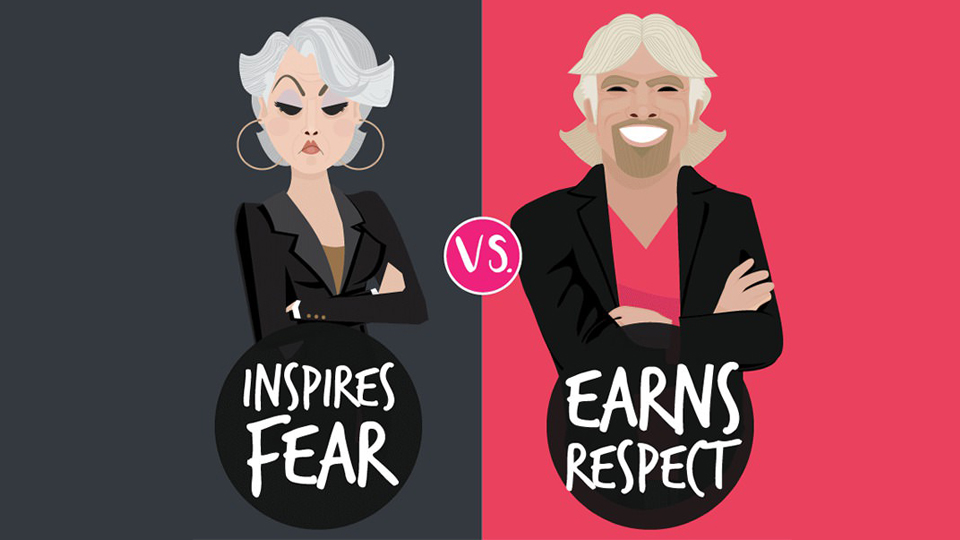My name is Pejman Ghadimi. I am a successful serial entrepreneur and best-selling book author of Third Circle Theory; and while many people can learn from my many business accomplishments, I come to you to day as a leader who has served in various leadership positions including the VP level for 8 years of my life.
I have also created countless leadership training courses and a book entitled “Check Mate: The 16 Principles of Leadership” to discuss the importance of changing your mentality from a horrible boss to a great leader. By not doing so, you may not realize that you are creating more problems for yourself and those around you.
As someone who cares about the economy, jobs, and enhancing a better way of life for all (rather than just handing it to them), I find myself in a unique position to allow you the benefit of the doubt in hopes that this letter will correct your mindset.
Before I get into the meat of this letter, I would like to clarify that this letter is intended for anyone who has employees directly working for them, people who report to them, or anyone in a position of authority whose words impact how others act.
This is particularly important as it is not intended to be read by those who simply hold a title of authority and never actually impact those who are their subordinates.
To be a leader or a boss, you have to interact and be in charge of human progress regardless of which direction you believe that progress should go.
As a horrible boss, you may not actually realize how much damage you are causing to people, and I don’t just mean psychologically. I also mean the physical damage you cause to all based on the simple actions you take towards one single person at work.
While many of you may nod your head saying “another one of those letters from a guy who thinks he knows the types of people I deal with,” I will say that you are correct in the fact that I have written letters before, one of which went viral addressed to those same stupid people you refer to.
While I agree that there are still plenty of people who are considered stupid by the masses, one can also argue that horrible bosses are the reason they became as such and will remain so unless we start turning horrible bosses into powerful leaders.
Your actions as horrible bosses have three powerful effects on those who are forced to follow your instructions, and you may not even be aware of this as it often occurs psychologically away from work.
- Destroys Self-Confidence: Believe me when I say this as I’ve coached hundreds of high level managers, VP’s, and CEO’s; and all of them do not realize that there is a difference in how you share your thoughts on someone’s horrible work ethic or quality. The reality is that giving people negative feedback without setting proper expectations, without sharing context, and without explaining how they can improve their work is no different than walking up to a guy in a wheelchair and saying he is an idiot for using a chair to walk. As disturbing as this may sound, the constant impact to the mind of constantly hearing “it’s not good enough” without being able to do something about it creates a negative side effect to the mind relating every failure in life to one’s inability to complete their work. It also discourages people from wanting to be better as a result of the feedback. In other words, telling someone they suck without first making them understand what incredible things they are capable of simply insults their work instead of pushing them to improve their capacity. This punch to their self esteem also prevents them from taking on new things in life, learning new skills, and becoming a better version of themselves.
- Creates Bitterness and Anger Towards Others: Many times when people are conflicted by their ability to do well at work, it creates a certain level of stress and insecurity that follows them home. This not only impacts their loved ones, but also shows in their actions towards them, their impatience towards humanity, as well as the change in teaching what expectations really are. This is particularly important as people who are easily influenced (hint: the only ones willing to work for a horrible boss) are typically the ones who change their expectations of work and life as a result of the experiences they have daily. It also means that you are limiting their beliefs by reducing their ability to reach higher, and this passes on to their children and others whom they interact with. Bitter people are typically people with very low expectations of themselves and others as most of us project our own reality onto others.
- Corrupt Their Judgment: This is a significant problem because I have witnessed many simple-minded people say things like, “If my boss can get away with it, and he is above me, then there is no reason why I can’t.” This culture may be ok in your organization, but this disease-like mindset is one that impacts all of us (including me), so it would be wise to stop. This promotes social ignorance and taking advantage of the system when people start differentiating the idea of big business with real people, saying things like “it’s just an insurance policy, it won’t impact anything if they lose an extra $10K” or “I am entitled to this, because I saw you do it for someone else” and the list goes on. The problem is that in that behavior is the beginning of a bad journey to misery based on everything that doesn’t go right instead of everything that is working. You are indirectly corrupting minds to believe the glass is always empty even when it is indeed full.
While you may not have realized the problems caused by being a horrible boss and its impact it has on everything around those individuals whose lives you make miserable, you now no longer have any excuses for being ignorant to the fact that any person in a position of authority needs to have a good understanding of the implications of directions and the power of good or bad interactions with those who follow the directions.
Giving you the bad without teaching you how to change it would be equally ignorant of me, since simply stating a problem has never fixed an issue nor has it ever offered a better future.
The only person who guarantees that a change will take place is the one leading it, which is why I write you with three critical things you can do starting tomorrow morning that will immediately change how you are perceived and allow you to be more successful in your roles within your work as well as in life in general.
- You Can Only Lead People, Not Numbers.
The faster you understand this simple concept, the more time you will spend training and investing time in those who will create the numbers you seek. While both good and horrible bosses want to reach their goals and be successful, great leaders understand that results stem from training their employees, setting correct expectations, and then providing them with support; not by ordering them around to do specific tasks.
- No One Asked You To Be Nice, But Be Fair.
One of the most misunderstood aspects of leadership is that great leaders are loved because they are always in agreement with their employees, are always nice to their employees, and typically give in to all their demands. Great leaders are not loved for being nice, they are loved for their balance between being human, fair, and creating environments that allow their employees to be their best and grow. Being fair is about finding your very own balance, not approving every vacation request on your desk. Being liked has never been the core focus of great leadership, and as a matter of fact, I had a reputation during my corporate America days that will shock you. I had the highest employee satisfaction rating for my entire 8 years in the position, and also I had the reputation for firing the most people. Two things you would never think go hand-in-hand, yet worked just fine for me, which proves that you don’t have to be nice to be loved and respected.
- Be Proactive Towards Growth, Their Growth That Is.
Don’t mistake giving raises and bonuses to people as growth. Today’s newer generation is ultimately born with the inability to stay focused, and money only goes so far. The growth of an individual is linked to more than just rewarding their work and is more focused on proactively helping them be the best version of themselves.
That being said, the greatest reward you can give a person isn’t a reward at all, but an earlier investment in their well-being, which ends up giving them a lifetime of rewards including some you will both benefit from.
Creating a proactive environment for growth will prevent high turnover and the need for a constant work / reward structure, which ultimately helps foster real loyalty.
So in the end, great leaders create better results than great bosses, and certainly better results than horrible bosses. But the reality is that not everyone is cut out to be in a leadership role, and it sometimes requires that self-realization so that true change can occur.
In other words, the earlier you realize you are a horrible boss, the earlier you can change and start putting in place the principles that enables true leadership to foster within yourself. The best part about it all is that knowing you can be a great leader instead of a horrible boss starts with defining the answer to a simple question: Why should anyone follow you?




